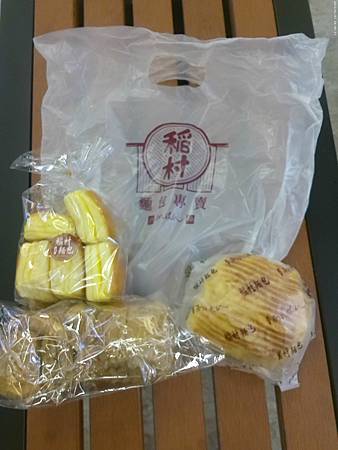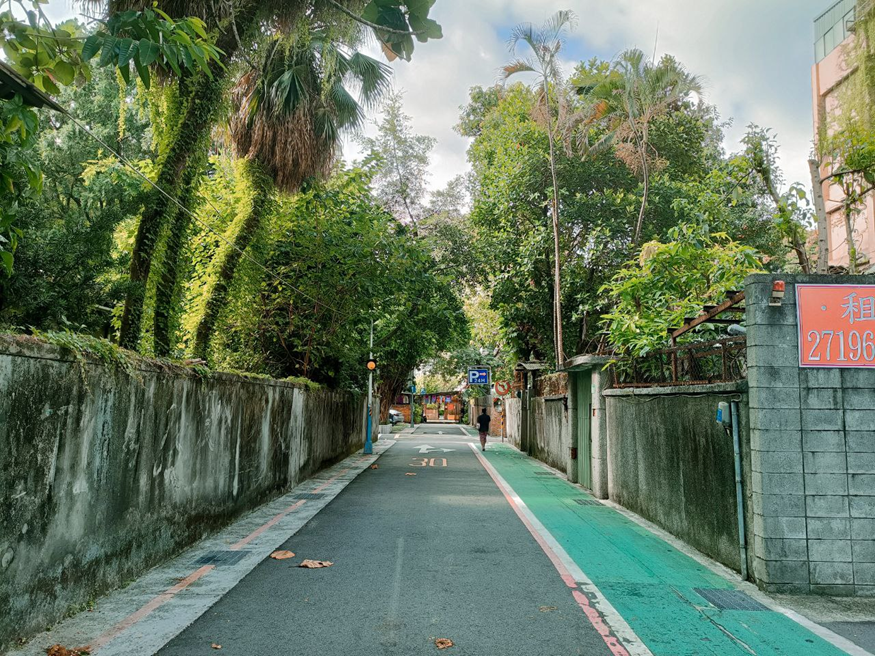「日屬台灣」的對話:Jereme Besson vs. Overseas Expansion / SW翻譯
「日屬台灣」的對話:Jereme Besson vs. Overseas Expansion / SW翻譯
【Remark】日本對於台灣是否擁有條約下的「剩餘主權」,是個議題。這個「剩餘主權」議題尚未定型,其機制與實踐如何呈現,尚不明白。因此直得台灣地位研究者討論。近日在網傳上發現本部落格網友之一的Jeremy Besson與Overseas Expansion有以下對話,特請SW予以翻譯。我則做專有名詞與形容詞的刪減,其目的是使對話體裁轉換為文章性格。Does Japan enjoy the residual sovereignty over Formosa and the Pescadores? That is a big question. The related questions are: what is the mechanism of the residual sovereignty and how it works? There was a dialogue between Jeremy Besson and the Overseas Expansion in a forwarded mail. It revealed some interesting points of view, which might be footnotes to our quest for Taiwan status. I thus asked SW to translate it for our readers. Jeremy Besson and the Overseas Expansion may leave message whenever they feel that we should not.
Overseas Expansion → Jereme Besson
Sent: October 17, 2011
Subject: Taiwan's legal status
Hello:
We have seen some more of Jerome's writings on the legal situation of Taiwan, and the arguments for and against recognition of Japanese sovereignty over Taiwan.
你好:我們已經見到許多 Jeremy 針對台灣法律情況的文章,以及贊成與反對日本對台灣主權的論述。
However, since most of the Taiwanese visitors to GlobalForum are not native English speakers, and the sentences in Jerome's commentary are often long and philosophical . . . . . (and therefore not easily rendered into Chinese), it is fair to say that many questions remain among the hearts and minds of those Taiwanese interested in this issue.
但,由於許多上 GlobalForum 的台灣網友的母語並非英語,而且 Jeremy 的句子較長與教具哲學性,因此很難以中文理解。所以,對台灣人而言還有許多疑問。
A participant with the name of Mr. Geer has commented "The residual sovereignty message is misleading, and it is utterly unsupported by the Japanese courts for over 30 years." Nevertheless, Jerome may have his own views on this subject.
其中一位 Geer 先生論及:「剩餘主權」是個誤導,已經被日本法院所不支持超過30年了。但 Jeremy 仍有自己的觀點。
If possible, please reply to the following questions in detail, with legal references where appropriate (the San Francisco Peace Treaty is one important legal reference, the judges' comments in Lin v. USA is another, the May 3, 1947 Japanese Constitution is another, and there have been Japanese court decisions on related issues such as the "lost Japanese nationality of Taiwanese persons") and, for the benefit of everyone, please consider posting this as a Q&A to GlobalForum.
可以的話,請詳細回覆以下疑問,並註明出處(如舊金山和約、林志昇控告美國政府、1947年5月3日的日本憲法,以及日本法院有關台灣人喪失日本國籍的相關判決),且為網友起見,請貼在GlobalForum 的Q&A上。
Q: Overseas Expansion / A: Jeremy Besson
Q1: In the current era, does Japan hold residual (territorial) sovereignty over Taiwan?
目前,日本握有台灣的剩餘主權嗎?
A1: Any Japanese lawmaker and MOFA (外務省) official will agree that Japan is out of the loop in regard to the debate over Taiwan. But then, what if the obvious is blocking our sight?
任何日本議員及外務省官員都會同意,日本跟台灣問題無關。但是,會不會過於明顯的事實反而使我們看不到真正的事實?
Under S.F.P.T., neither Japan, nor the Chinese hydra, not even the allegiance-impaired Formosan can claim territorial sovereignty (領土主権). The US is adamant it does not hold it and has no design of its own over Taiwan.
在SFPT之下,日本、難纏的中國以及忠誠度受損的台灣,都不能宣告擁有領土主權。美國也堅稱,它沒有台灣主權,對台灣也無計畫。
However, until the (S.F.P.T. art. 2(b)) limbo cession reaches ultimate status, overall responsibility for the (S.F.P.T. art. (4b)) jurisdiction ((管轄権) and disposition (処分権) of Japanese Taiwan rests with the (S.F.P.T. art. 23(a)) principal occupying power.
然而,在S.F.P.T. 第2(b)條這個被忽略的條款終止之前,S.F.P.T. 第4b條對日屬台灣的完整責任、管轄権與処分権都在主要佔領國手中。
Sovereignty has not passed. It is only suspended by the fact of foreign military occupation. In the interim and under the successor and amended version of the Meiji Constitution, Japan holds residual territorial sovereignty over Taiwan.
主權沒有轉移,只是因為外國軍事佔領而暫時擱置。在臨時階段,在繼任者及明治憲法的修訂版下,日本仍握有對台灣的剩餘領土主權。
Q2: In the current era, in consideration of the provisions of the May 3, 1947, Japanese Constitution and other related Japanese laws, is the Japanese Emperor holding the territorial sovereignty of Taiwan?
目前,鑑於1947年5月3日的日本憲法的條款以及其他相關日本法令,日本天皇還握有台灣的領土主權嗎?
A2: Territorial sovereignty is the topic of international treaties. Whether territorial sovereignty shrinks or expands is immaterial and irrelevant to a document concerned with balancing the rights of the people against the power entrusted in its government.
領土主權是國際條約的議題。領土主權縮小或擴張,都跟國內憲法秩序無關(a document concerned with balancing the rights of the people against the power entrusted in its government)。
Under the current constitution, the Emperor holds no sovereignty, territorial or otherwise. The Emperor is popular sovereignty mirrored. Sovereignty, says the constitution, resides in the people, the body polity (国体) of yore, And the Emperor, embodying the historical and cultural DNA of Japan is cast in the crucible of the immediacies the Japanese people is confronted with.
目前的日本憲法下,天皇沒有主權、領土或其他東西。天皇只是鏡射或象徵(mirror)著國民主權。日本憲法規定,主權在人民,即古早的國體。而天皇(代表日本歷史及文化的 DNA)則僅供日本民族憑弔。
Territorial sovereignty is temporarily suspended by the fact of foreign military occupation. Under the successor and amended version of the Meiji Constitution, the Emperor of Japan mirrors Japan’s sovereignty of Taiwan to the irreducible Formosan Japanese’s sagacious eye.
主權沒有轉移,只是因為外國軍事佔領而暫時擱置。在繼任者及修訂過的明治憲法下,日本天皇鏡射或象徵(mirror)對台灣的「剩餘領土主權」。
Q3: In the current era, can native Taiwanese persons legally claim "political participation rights" in Japan?
目前,本土台灣人有權在日本行使政治參與權嗎?
A3: As long as foreign military control over Japanese Taiwan lasts, the Formosan Japanese are excluded from participating in Japanese politics. Neither Japan nor the occupier would allow it.
只要台灣的軍事佔領持續著,台日人不得參與日本政治。日本與佔領者都不允許。
While occupation lasts, exercise of sovereignty is suspended and the residents of the occupied territory are deemed estranged. The need for them to carry travel documents issued by the occupying power-approved civil government equates their status in Japan to that of foreigners.
佔領持續著,主權的行使被擱置,被佔領區的住民被認為是疏離的(註:意即非國內)。旅行時必須備有佔領者所認可的民政府所核發的文件,台灣人在日本被視為外籍人士。
The above does not prevent the Formosans from using all available channels to inflect the policies of Japan in regard to Taiwan. Others do and the DPJ coalition presently in government is opened to the concerns of foreign powers and of their nationals residing in Japan.
以上所述並不表示,台灣不能使用任何可行的管道去影響日本的台灣政策。其他人都這麼做了,而目前政府裡面的民主黨聯盟也受理有關外國及其居住在日本的國民的事務。
Q4: In the current era, in consideration of the provisions of the May 3, 1947, Japanese Constitution and other related Japanese laws, is the Japanese Emperor's Imperial Rescript of April 1, 1945 still legally valid?
目前,鑑於1947年5月3日的日本憲法條款及相關的日本法令,1945年4月1日的日本天皇敕令是否仍然有效力?
A4: The Imperial Rescript of April 1, 1945 was an internal affair of a sovereign and independent Japan that puts Taiwan in the same league as California or Utah or Alaska or French Algeria before independence.
1945年4月1日的日本〈天皇敕令〉是主權獨立的日本的內政事務,把台灣放在與California, Utah, Alaska, 或法屬阿爾及利亞獨立前的位階。
The Imperial Rescript of April 1, 1945 resulted from a long process of assimilation, of nation building in conformity with internationally accepted standards of domestic administration. It remains as valid as the transfer of sovereignty resulting from the Treaty of Shimonoseki.
1945年4月1日的日本〈天皇敕令〉是長時間的同化結果,是一個國家在符合國際所接受的國內行政標準之下的長期建國的結果。它跟〈馬關條約〉所造成的主權轉移,一樣有效力。
Q5: For areas under military occupation, the US Supreme Court has recognized a doctrine of "territorial sovereignty held in trust." (Technically speaking, this is not "ownership.") The trustee is the (principal) occupying power. Could such a doctrine have any application to Taiwan's current situation?
對於佔領下的地區,美國最高法院已經認定了「受信託的領土主權」的信條。(技術上來說,這不是所有權。)受託者是(主要)佔領國。這樣的原則可以運用到台灣目前的狀況嗎?
A5: Under S.F.P.T., neither Japan, nor the Chinese hydra, not even the allegiance-impaired Formosans can claim territorial sovereignty (領土主権). The US is adamant it does not hold it and has no design of its own over Taiwan.
在SFPT之下,日本、難纏的中國以及忠誠度受損的台灣,都不能宣告擁有領土主權。美國也堅稱,它沒有台灣主權,對台灣也無計畫。
However, the (S.F.P.T. art 23 (a)) principal occupying power holds temporary (S.F.P.T. Art. 4(b)) jurisdiction ((管轄権) and disposition (処分権) rights over the (Art. 2(b)) separate custom territory of Japanese Taiwan/Penghu and maritime dependencies in the South China Sea.
但是,根據SFPT第23(a)的主要佔領國(美國),對獨立關稅區「日屬台/澎」以及南海的海洋附屬地,擁有SFPT第4(b)的暫時的管轄權與處分權。
Overall responsibility for the occupied territory rests ultimately with the US commander-in-chief while occupation lasts. Does the US hold Japanese Taiwan in trust?
佔領持續時,佔領區的整體責任最終在於美國的統帥。但「日屬台灣」有受美國管託嗎?
The (S.F.P.T. Art. 4(b)) transfer of jurisdiction ((管轄権) and disposition (処分権) rights over the (Art. 2(b)) separate custom territory of Japanese Taiwan/Penghu and maritime dependencies in the South China Sea points at a quasi-trusteeship of USMG on Taiwan. It differs with that of Okinawa in that it remains de jure, owing to the US’s ill-fated decision to rely on its Chinese proxy.
S.F.P.T第4(b)條對獨立關稅區「日屬台澎」以及南海的海洋附屬地的管轄權及處分權轉移,指向USMG對台灣的準託管關係。由於美國很不幸地決定依賴中國代理人,這個託管關係停留在法律層面,與沖繩的情況不一樣。
Q6: In Roger Lin v. USA, the judges on April 9, 2009, held that "America and China's tumultuous relationship over the past sixty years has trapped the inhabitants of Taiwan in political purgatory." In Taiwan, if the Jan. 2012 elections proceed as planned and the DPP candidate wins, as the new President of the ROC, will Ms. Tsai be able to lead Taiwan out of its political purgatory?
在Roger Lin控告美國的案子,2009/4/9法官認為:「過去60年來美國與中國不平靜的關係,陷台灣住民於政治煉獄中。」在台灣,如果2012年1月的選舉如期舉行,而DPP候選人當選ROC總統, 蔡 女士能夠領導人民脫離這個政治煉獄嗎?
A6: Formosan Japanese have no business, no right to inject themselves in the internal affairs of the Chinese rebel faction presently exiled on US-occupied Japanese Taiwan. If a Formosan deems him/herself Chinese, he/she will have to live with the consequences.
目前流亡在美國佔領的「日屬台灣」的中國叛亂派系,跟台灣人沒有關係,台灣人沒有權力干涉其內部事務。如果台灣人認為他自己是中國人,那他就必須要面對後果。
The Chinese proxy has an appalling record in conducting the civil affairs of U.S.M.G. on Taiwan. When the U.S.M.G. court-martial of Taiwan convenes, processing their crimes will be a tall order.
在處理USMG的平民事務上,中國代理者的紀錄很恐怖。等USMG的台灣軍事法庭召集會議,處理他們的罪行將會是難以想像的艱鉅任務。
【相關閱讀】「日屬台灣」的對話:Jereme Besson vs. Overseas Expansion / SW翻譯戰後台灣的故事◎Jerome Besson / SW+雲程 翻譯「日屬台灣」的對話:John Hsieh的意見◎雲程翻譯


















